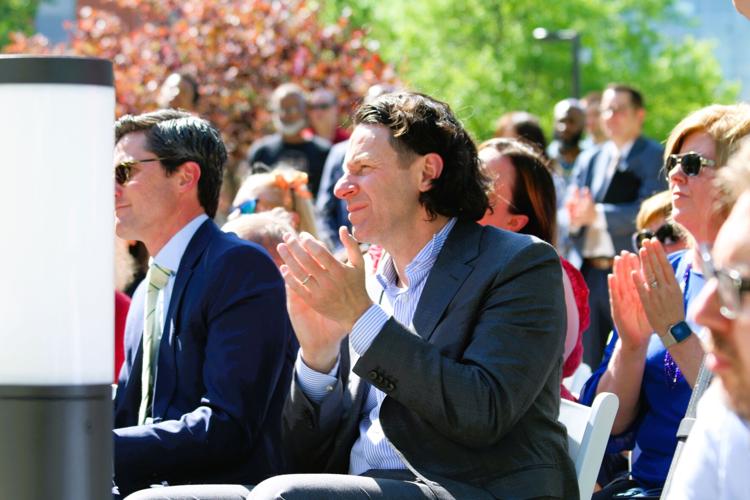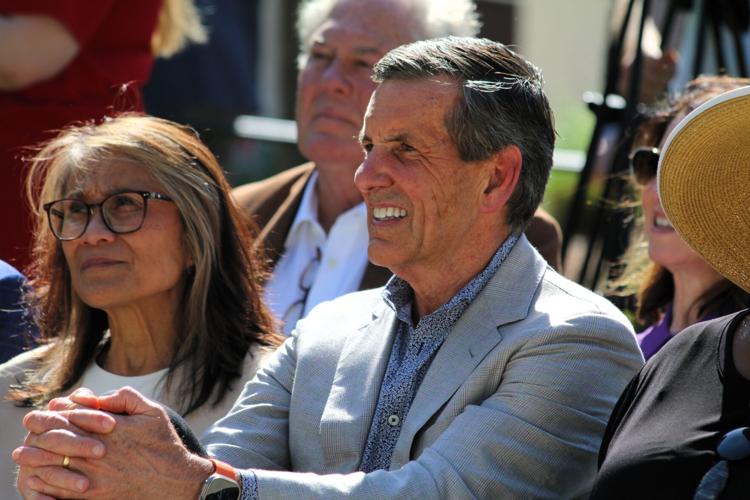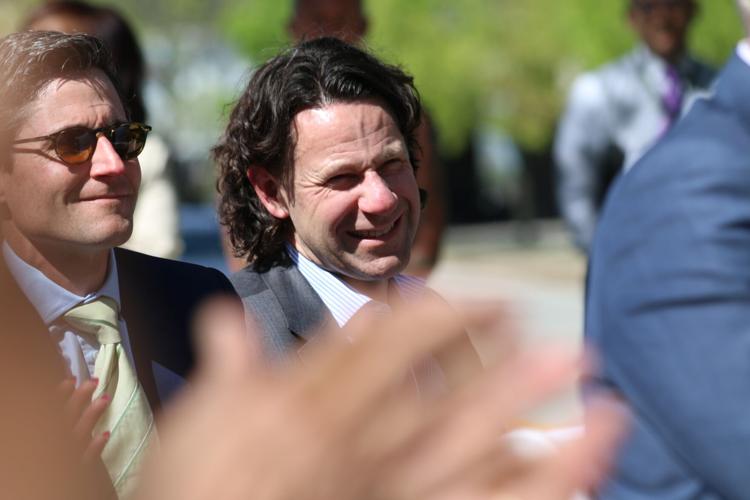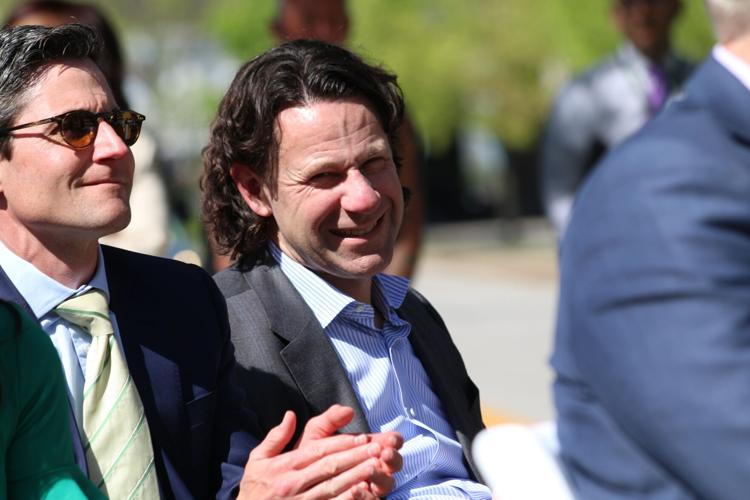LOUISVILLE, Ky. (WDRB) — When renowned Louisville sculptor Ed Hamilton began making a life-sized cast in the image of late Humana Inc. co-founder David Jones, Hamilton put Jones in a suit coat.
Then, he thought better of it. Jones, whom Hamilton knew personally for decades before Jones’ 2019 death, was more a doer than corporate manager, Hamilton thought. So he instead cast him a short-sleeve shirt, carrying a rolled blueprint, a pen in his pocket and his right arm extended, ready to make a deal.
Hamilton’s bronze statue of Jones was formally unveiled Wednesday in the green space in front of Humana’s Waterside office building.
“I was hoping he (the sculpture) was going have short sleeves, because that’s the way I remember David — and the pocket protector as well. It’s true to form,” said Humana board chairman Kurt Hilzinger, who spoke on behalf of the company.
Jones, a native Louisvillian, built Humana from a single nursing home to a Fortune 500 company, the largest corporation headquartered in Kentucky. He ran the company from the 1960s to the 1990s before relinquishing his board seat in 2005.
“It meant a great deal to (Jones) that his success had such an impact on Louisville’s success,” Hilzinger said during the ceremony. “To this day, his imprint remains on the people of the company he co-founded and the community he wanted to see thrive.”

Humana CEO Bruce Broussard at an event to unveil a sculpture of the late David A. Jones, who co-founded the company in Louisville and was one of the city's greatest civic boosters. By Chris Otts, WDRB News, April 17, 2024
Celebrating the past, uncertain future
Wednesday's event — coinciding with a Humana board meeting — drew a rare public appearance in Louisville of the company’s C-Suite, including CEO Bruce Broussard and future CEO Jim Rechtin.
Like the unfurling of a Hometown Heroes banner dedicated to Jones last year, the homages to the late founder come at time when it’s obvious, even if unsaid, that Humana is less rooted in Louisville than in the Jones era or even a decade ago.
The company, having embraced remote work, is consolidating its Louisville footprint into a single site at the Waterside building. Many top executives are based elsewhere, especially an office in the Washington, D.C. area.
No one during Wednesday’s ceremony mentioned the biggest physical imprint Jones left on Louisville: the 27-story granite headquarters tower the company built on West Main Street, which Humana now plans to vacate.
Humana hasn’t said what’s next for the tower — whether it becomes home to another company or government agency, or is perhaps adapted as a hotel or residential space.
Nonetheless, the tower’s best days could be ahead, said Broussard, who plans to leave this year after a decade at the helm of Humana.
“I wouldn’t come to any conclusions. I think the city and our Humana team is working together to find what’s best for the community,” Broussard told WDRB News in a brief interview following Wednesday’s event. “Similar to this event, we are very honored to have the history we have, and at the same time to think about the progression going forward.”
Meanwhile, Jones would have “laughed” at the placement of his statue in front of the Waterside building, his son David told the crowd Wednesday.
That’s because the building is not a testament to Jones’ success building Humana; it’s a relic of his biggest business failure.
In the 1980s, Jones led a $60 million buyout of troubled Louisville company called Belknap Hardware and Manufacturing. His turnaround plan for the company failed and after Belknap went belly-up, Humana ended up with Belknap’s downtown real estate.
Jones, who lost millions in the deal, wrote in his posthumously published autobiography, “Always Moving Forward,” that he bought Belknap mainly to protect the company from “an out-of-town raider” based in Chicago.
“I was certain that if Belknap were sold, its corporate soul would not be in Louisville,” Jones wrote in the book.






























